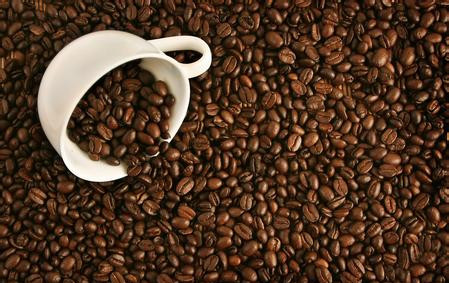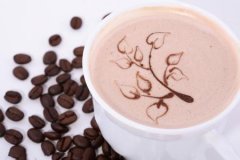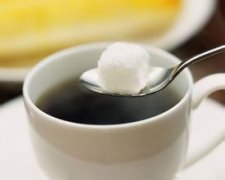Dietary taboos who are not suitable for drinking tea and coffee
Tea and coffee are loved by office workers because of their refreshing and fatigue-relieving effects. However, tea and coffee are not so simple to drink, but also fastidious. A little carelessness will affect your health.

Choose the right time
The best drinking time of tea: 0.5 hours after eating, tea contains more tannic acid, if you drink tea immediately after a meal, tannic acid may combine with some trace elements in food, affecting absorption, a long time can cause the lack of these elements in the body. The stronger the tea, the easier it is to reduce the absorption of some trace elements, which is the secret that people who like to drink strong tea are prone to some element deficiency.
The study found that most of the trace elements in the food have been absorbed 0.5 hours after eating, and drinking tea at this time does not interfere with the absorption.
The right time to drink coffee: preferably after breakfast and lunch
Because this can promote gastrointestinal peristalsis, help digestion, can break down the high-energy, high-fat food eaten, and will not cause irritation to the stomach like drinking coffee on an empty stomach. It's best not to drink coffee after dinner, as it will affect your sleep.
If you want to stay up all night by drinking coffee, you may drink too much before you know it, which has a bad effect on your health.
Special people should not drink too much.
People in special periods should reduce their consumption of tea and coffee:
(1) physiological period:
For women, when the monthly menstrual period comes, menstrual blood will consume a lot of iron in the body, if you are used to drinking strong tea, tannic acid in tea will hinder iron absorption, greatly reduce the degree of iron absorption, prone to the phenomenon of anemia.
(2) pregnancy:
In general, the concentration of caffeine in strong tea is as high as 10%, which will increase the urine volume of pregnant women, increase the number of heartbeats, increase the load on the heart and kidneys of pregnant women, and may lead to pregnancy poisoning. Therefore, it is better to drink less tea.
(3) lactation period:
After breast-feeding mothers drink tea, the caffeine in the tea can seep into the milk and indirectly affect the baby, which is harmful to the baby's health.
(4) menopause:
Menopausal women, in addition to dizziness and fatigue, sometimes have a rapid heartbeat, bad temper, poor sleep quality and other phenomena, if you drink too much strong tea will aggravate these symptoms.
(v) Children:
Because the concentration of tea is too high, the content of tea polyphenols is too much, which is easy to interact with iron in food, which is not conducive to the absorption of iron, and is easy to cause iron deficiency anemia in children. Children can drink some light tea in moderation, which is 1 / 3 of the concentration of tea consumed by adults.
Some patients had better stay away.
(1) patients with atherosclerosis:
Tea and coffee contain bioactive substances such as theophylline, caffeine and theobromine. These substances have an obvious excitatory effect on the central nervous system, and this exciting process will cause cerebral vasoconstriction after the excitation of the cerebral vascular motor center. This is a potential threat to patients with cerebral arteriosclerosis.
(2) insomnia patients:
No matter what the cause of insomnia, it is not appropriate to drink tea and coffee before going to bed, this is because the caffeine and aromatic substances are exciting.
(3) patients with hypertension and heart disease:
Although tea and coffee can reduce the headache symptoms of patients with hypertension, they can increase their blood pressure. When excessive, it will increase the heart rate, which is bad for patients with high blood pressure and heart disease.
(4) gout patients:
Because the tannic acid in the tea may aggravate the patient's condition, it is not suitable to drink strong tea.
(5) people who need to rest after illness, patients with hyperthyroidism and tuberculosis:
Caffeine can excite people and cause an increase in basic metabolism, so that people who need to be quiet and patients with hyperthyroidism and tuberculosis can not get good rest and treatment.
(6) patients with active gastric ulcer and duodenal ulcer:
It can stimulate and secrete a large amount of gastric acid, affect the healing of ulcer surface, aggravate the condition, and produce symptoms such as pain. Therefore, people with ulcerative tendencies should drink less strong tea and coffee.
(7) patients with habitual constipation:
Should not drink more strong tea, because the tannic acid in tea can reduce intestinal peristalsis and aggravate constipation.
(8) patients with fever:
The theophylline component in tea will increase the temperature of the human body and aggravate the fever. Due to the diuretic effect of theophylline, it may reduce the effect of antipyretic and cooling drugs.
Important Notice :
前街咖啡 FrontStreet Coffee has moved to new addredd:
FrontStreet Coffee Address: 315,Donghua East Road,GuangZhou
Tel:020 38364473
- Prev

Coffee time to drink healthier after a coffee meal
Coffee, as a representative of fashion and delicacy, has been favored by countless people. However, drinking coffee without paying attention to time will cause harm to people's body. Coffee contains caffeine, which excites the sympathetic nerves after entering the body, thus eliminating drowsiness, improving blood circulation, and the body also feels warm and does not feel tired, so it has a refreshing effect. But the sympathetic nerve is affected
- Next

Milk Coffee accompanied by the most beneficial calcium Fine Coffee
Chinese people's daily food structure is lack of adequate calcium intake, coupled with the usual lazy exercise, so people who like to drink coffee should pay attention to calcium supplements. In addition, women after menopause, due to the lack of estrogen, drinking coffee will also cause calcium loss. Adults who drink coffee regularly can get 100 milligrams of calcium a day, or at least one glass of milk a day to supplement calcium.
Related
- Beginners will see the "Coffee pull flower" guide!
- What is the difference between ice blog purified milk and ordinary milk coffee?
- Why is the Philippines the largest producer of crops in Liberia?
- For coffee extraction, should the fine powder be retained?
- How does extracted espresso fill pressed powder? How much strength does it take to press the powder?
- How to make jasmine cold extract coffee? Is the jasmine + latte good?
- Will this little toy really make the coffee taste better? How does Lily Drip affect coffee extraction?
- Will the action of slapping the filter cup also affect coffee extraction?
- What's the difference between powder-to-water ratio and powder-to-liquid ratio?
- What is the Ethiopian local species? What does it have to do with Heirloom native species?

